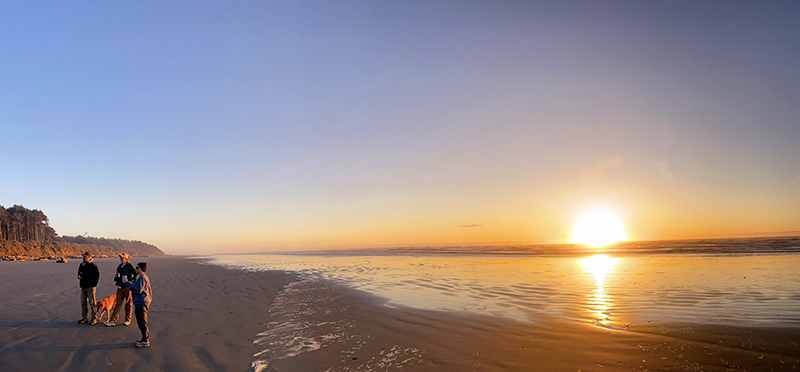
Kalaloch Beach Sunset on Thanksgiving Day
As I get older, the start of each new year gives me a little jolt of disbelief as I try to comprehend the new number representing the annual passage of time. Throughout the 80s and 90s, I didn’t think much of the year. I was young and 1995 didn’t seem that far away from the year I was born. I remember living through the insanity of Y2K (memory refresher: nothing happened!) and then, with the tick of the seconds hand, we jumped into the 21st Century. That first decade of the 2000s – the aughts – was fun because well, I was in my twenties, but also because writing 2000 was new and exciting. As that thrill began to wear off, we stumbled into the next decade… and then another. Now, we’re at 2024 and I wonder how we got here.
It’s not just that 2024 sounds like some totally futuristic time. (Side note: The Jetsons were set in 2062!!) It’s that it feels REALLY far away from the year I was born. For a little baby – let’s say his name is Camden – born just a year ago, moving into 2024 is nothing. For me, last year was one of many. To Camden, it’s the only one he has known. Each new year is a real life lesson on the relativity of time and how it can only be understood by the observer. Ahh, perception, one of my favorite topics (Lilypad Perspectives… get it?!).
Scientists define time as the progression of events from the past to the present into the future. It’s considered the fourth dimension because it is the measurement needed to describe events within a three-dimensional space. Okay, sure, we all know this. What I’m wondering is why time felt slower when I was a kid and has progressively moved faster and faster as I’ve gotten older. Why does one’s perception of time change with age?
Apparently there isn’t a total consensus by the scientific community as to why this phenomenon occurs, but it is generally understood that memory formation is the basis for human perception of time. Our brains naturally lump together similar events. Doing the same thing day after day blends those memories, causing the brain to feel like time is flying by. New and exciting events make days feel different and are set apart in our minds, thus making time feel slower. While we are young, the brain forms more memories of new experiences, which makes time feel drawn out. As we get older, we create fewer new memories and this makes time appear to pass more quickly. And there you have it – time perception explained in one paragraph!
So, other than the new year, why this deep dive into this paradoxical scientific and philosophical topic? I was just trying to get at the fact that we started building our house exactly two years ago today – January 10, 2022. We’ve created so many new memories during that time… Remember when we poured the concrete slab in the snow? Remember when the wall fell on us?! Remember when there was nothing there at all?!!
We don’t have much to report on house progress as Tache has been fighting with the in-floor heating system for a couple months. (Hopefully I can get him to write that post when it’s up and running.) Luckily we have the fireplace to keep us warm and the new smart TV to keep us entertained. Tache started on the deck in the fall, but hasn’t done much more over winter. He hung my treasured chandelier and tiled the kitchen once we final made a decision (15 tile samples and 6 months later). We spent Thanksgiving on the coast and had family here for Christmas.
Somehow, it all feels fast and slow at the same time. How do scientists explain that?! I’m not sure if this is evidence-based science, but I’d say time flies when you’re having fun.


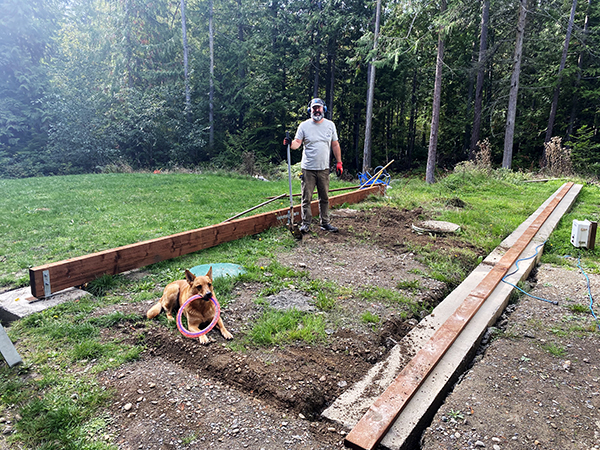
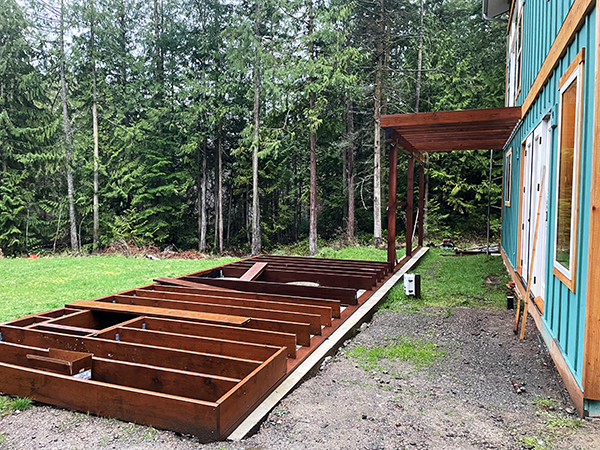


Thanksgiving on the Coast
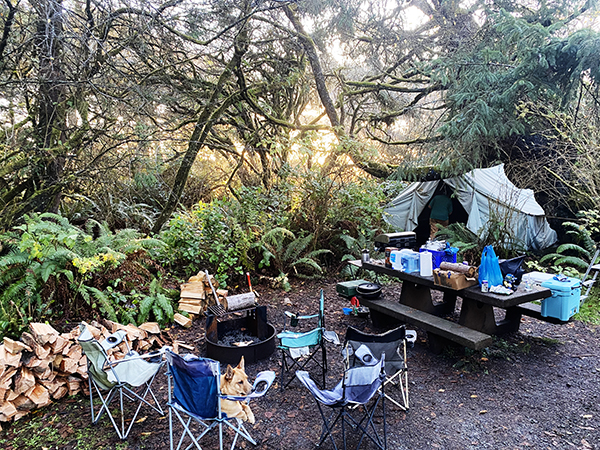
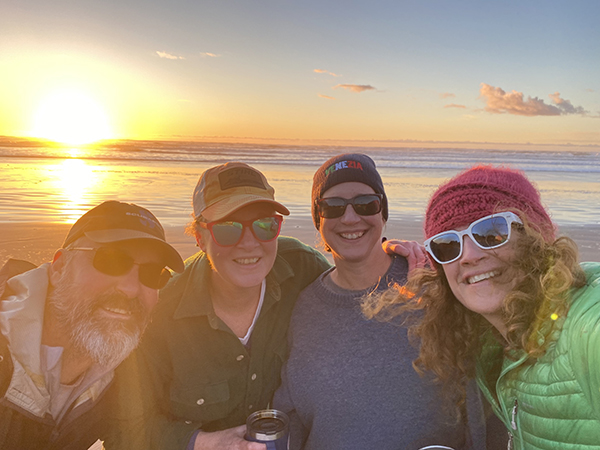
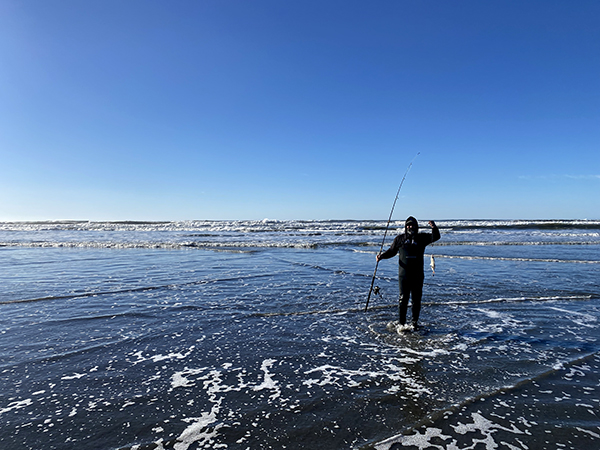
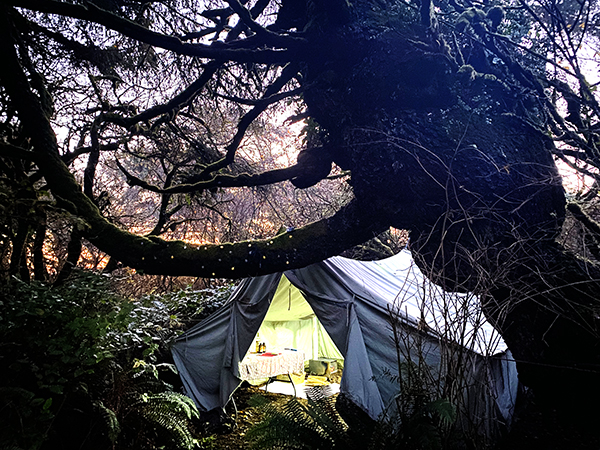
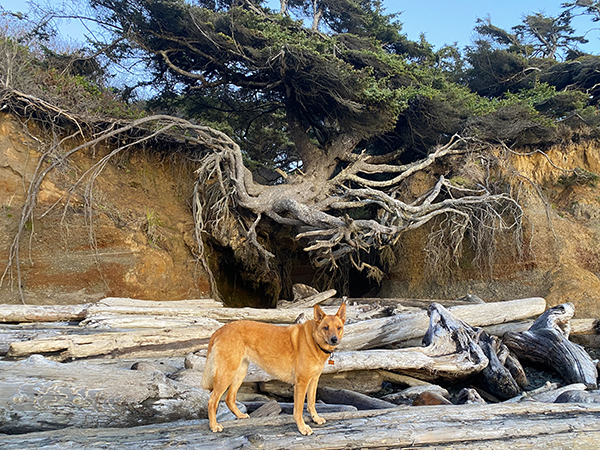
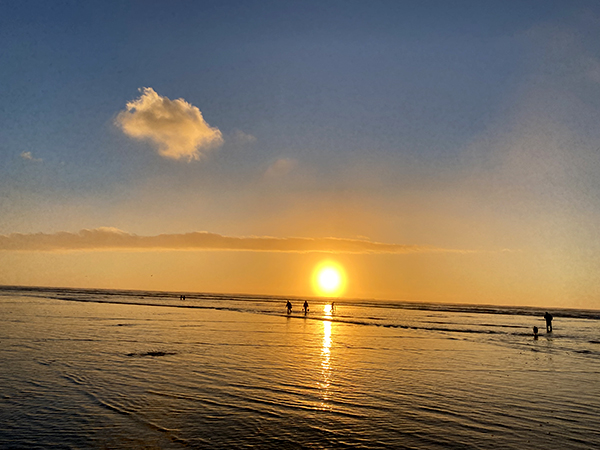
Christmas at 23 Magnolia

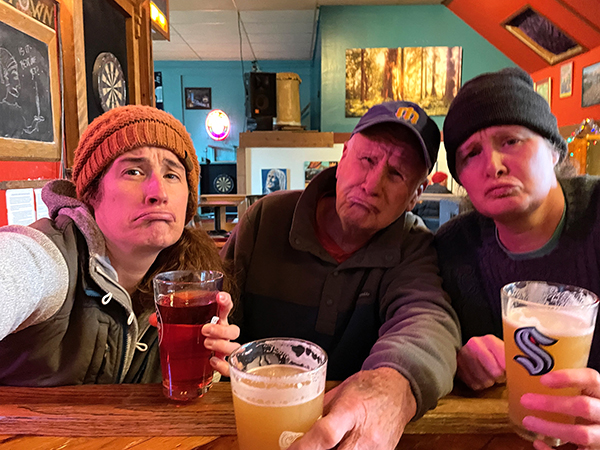

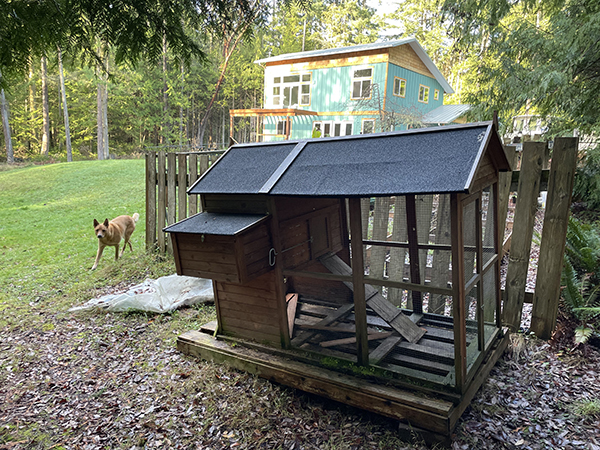
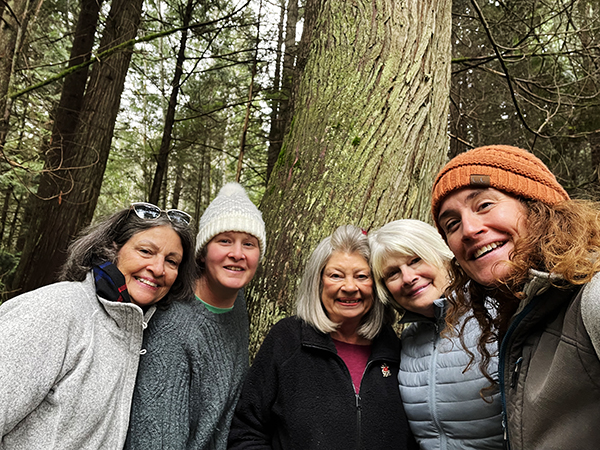
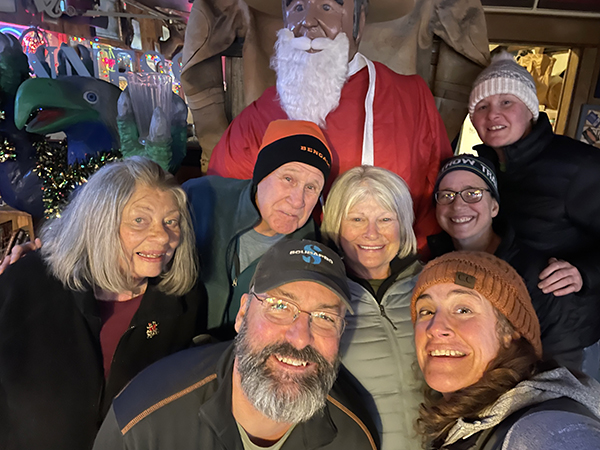


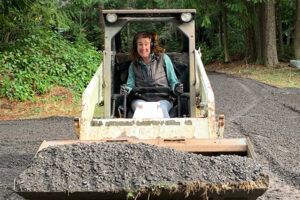

Love the tile choice! Nicely done! Also, I see Mox has picked a new favorite chair by the windows. It suits her well. I can’t wait to get into more theories of time when you visit!